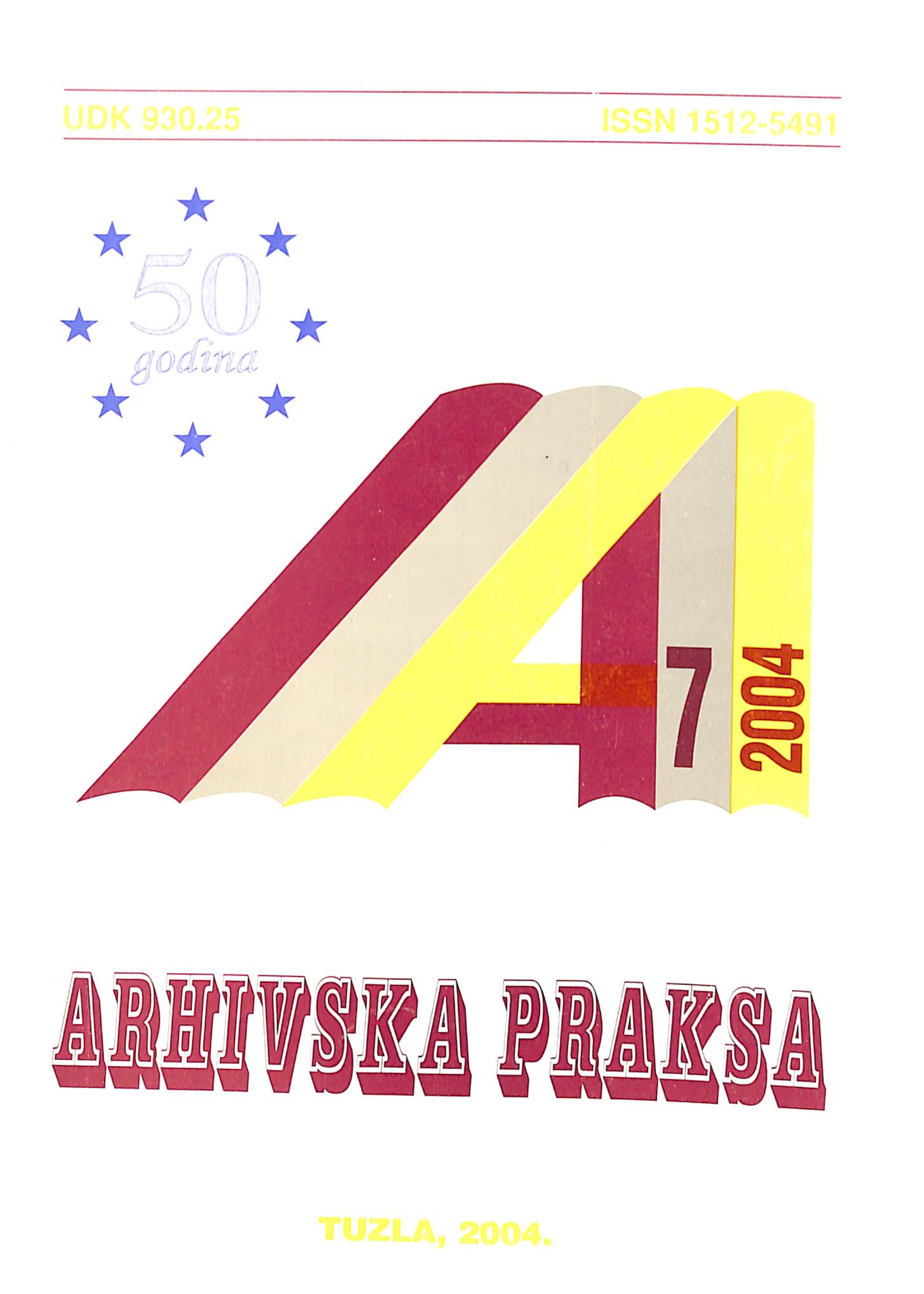STANDARDIZACIJA ARHIVSKOGA ZNANJA
STANDARDIZATION OF ARCHIVAL KNOWLEDGE
Author(s): Azem KožarSubject(s): Archiving, Library operations and management, Electronic information storage and retrieval
Published by: Arhiv Tuzlanskog kantona
Keywords: standardization; archival knowledge; archival activities; evaluating; archives;
Summary/Abstract: Standardization of any activity at the global level is very important and necessary process. It contributes to the harmonization of knowledge and skills, and allows their use and in areas which are lagging behind. Acceptance of international standards or adoption of their own (state) is made a condition of receipt of a country in the world family of countries (United Nations Organization) and the European Union as a community of developed European countries. It is now a requirement and prerequisite for the development of each country. War-torn and politically destabilized Bosnia and Herzegovina late in this process. Both of these reasons are still reflected in each area of work, and even on the level of archival knowledge, because to this day have not been resolved elemental questions archival profession. There is no organized system of standardization (appropriate regulations and institutions), and the inner potential of archival activities (facilities, equipment, personnel) are not such as would be passed at the state level at least somewhat able to depreciate. Still, there are expert knowledge on what international standards can or can not apply. It is particularly sensitive to the application of standards of evaluation material. The solution is to build their own standards for the period in which the most damaged archives. However, this requires much stronger human resource base activities, considerably more archival space, more modern archival equipment, and a lot more understanding of the institutions of the system (of government) for this activity.
Journal: Arhivska praksa
- Issue Year: 2004
- Issue No: 7
- Page Range: 84-96
- Page Count: 13
- Language: Bosnian, Croatian, Serbian

